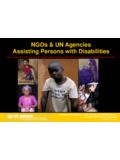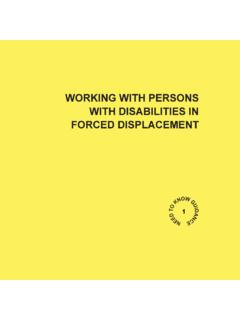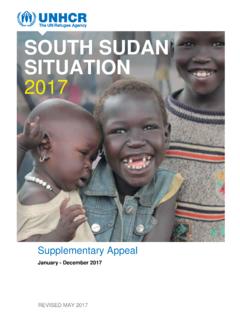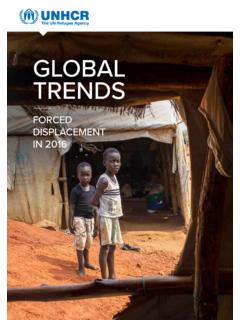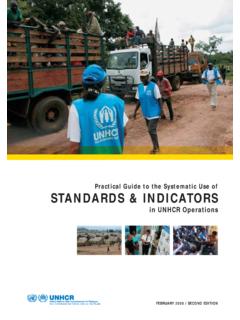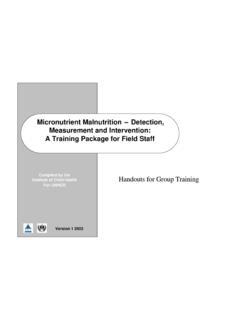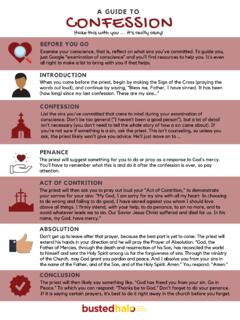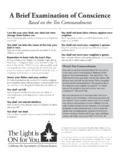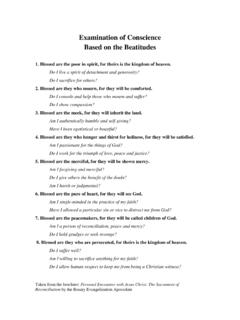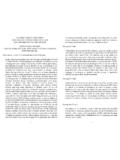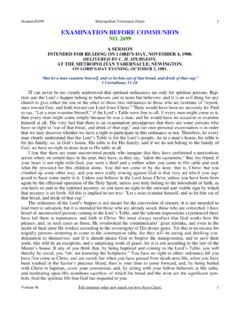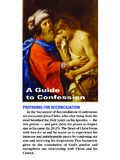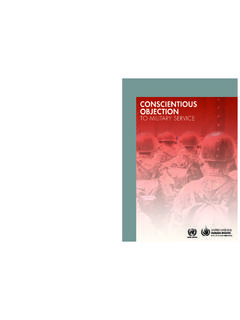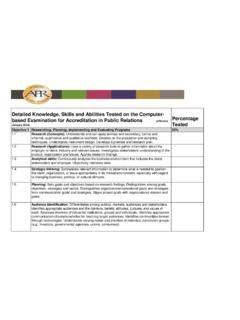Transcription of Convention for the Protection of Human Rights and ...
1 European Treaty Series - No. 5 Convention for the Protection of Human Rights and Fundamental Freedoms, as amended by Protocol No. 11 Rome, The text of the Convention had been amended according to the provisions of Protocol No. 3 (ETS No. 45), which entered into force on 21 September 1970, of Protocol No. 5 (ETS No. 55), which entered into force on 20 December 1971 and of Protocol No. 8 (ETS No. 118), which entered into force on 1 January 1990, and comprised also the text of Protocol No.
2 2 (ETS No. 44) which, in accordance with Article 5, paragraph 3 thereof, had been an integral part of the Convention since its entry into force on 21 September 1970. All provisions which had been amended or added by these Protocols are replaced by Protocol No. 11 (ETS No. 155), as from the date of its entry into force on 1 November 1998. As from that date, Protocol No. 9 (ETS No. 140), which entered into force on 1 October 1994, is repealed and Protocol No. 10 (ETS no. 146) has lost its purpose.
3 6 The governments signatory hereto, being members of the Council of Europe, Considering the Universal Declaration of Human Rights proclaimed by the General Assembly of the United Nations on 10th December 1948; Considering that this Declaration aims at securing the universal and effective recognition and observance of the Rights therein declared; Considering that the aim of the Council of Europe is the achievement of greater unity between its members and that one of the methods by which that aim is to be pursued is the maintenance and further realisation of Human Rights and fundamental freedoms.
4 Reaffirming their profound belief in those fundamental freedoms which are the foundation of justice and peace in the world and are best maintained on the one hand by an effective political democracy and on the other by a common understanding and observance of the Human Rights upon which they depend; Being resolved, as the governments of European countries which are like-minded and have a common heritage of political traditions, ideals, freedom and the rule of law, to take the first steps for the collective enforcement of certain of the Rights stated in the Universal Declaration, Have agreed as follows.
5 Article 11 Obligation to respect Human Rights The High Contracting Parties shall secure to everyone within their jurisdiction the Rights and freedoms defined in Section I of this Convention . Section I1 Rights and freedoms Article 21 Right to life 1 Everyone's right to life shall be protected by law. No one shall be deprived of his life intentionally save in the execution of a sentence of a court following his conviction of a crime for which this penalty is provided by law.
6 2 Deprivation of life shall not be regarded as inflicted in contravention of this article when it results from the use of force which is no more than absolutely necessary: a in defence of any person from unlawful violence; b in order to effect a lawful arrest or to prevent the escape of a person lawfully detained; c in action lawfully taken for the purpose of quelling a riot or insurrection. 1 Heading added according to the provisions of Protocol No.
7 11 (ETS No. 155). 7 Article 31 Prohibition of torture No one shall be subjected to torture or to inhuman or degrading treatment or punishment. Article 41 Prohibition of slavery and forced labour 1 No one shall be held in slavery or servitude. 2 No one shall be required to perform forced or compulsory labour. 3 For the purpose of this article the term forced or compulsory labour shall not include: a any work required to be done in the ordinary course of detention imposed according to the provisions of Article 5 of this Convention or during conditional release from such detention; b any service of a military character or, in case of conscientious objectors in countries where they are recognised, service exacted instead of compulsory military service.
8 C any service exacted in case of an emergency or calamity threatening the life or well-being of the community; d any work or service which forms part of normal civic obligations. Article 51 Right to liberty and security 1 Everyone has the right to liberty and security of person. No one shall be deprived of his liberty save in the following cases and in accordance with a procedure prescribed by law: a the lawful detention of a person after conviction by a competent court; b the lawful arrest or detention of a person for non- compliance with the lawful order of a court or in order to secure the fulfilment of any obligation prescribed by law.
9 C the lawful arrest or detention of a person effected for the purpose of bringing him before the competent legal authority on reasonable suspicion of having committed an offence or when it is reasonably considered necessary to prevent his committing an offence or fleeing after having done so; d the detention of a minor by lawful order for the purpose of educational supervision or his lawful detention for the purpose of bringing him before the competent legal authority; e the lawful detention of persons for the prevention of the spreading of infectious diseases, of persons of unsound mind, alcoholics or drug addicts or vagrants; f the lawful arrest or detention of a person to prevent his effecting an unauthorised entry into the country or of a person against whom action is being taken with a view to deportation or extradition.
10 1 Heading added according to the provisions of Protocol No. 11 (ETS No. 155). 8 2 Everyone who is arrested shall be informed promptly, in a language which he understands, of the reasons for his arrest and of any charge against him. 3 Everyone arrested or detained in accordance with the provisions of paragraph of this article shall be brought promptly before a judge or other officer authorised by law to exercise judicial power and shall be entitled to trial within a reasonable time or to release pending trial.

